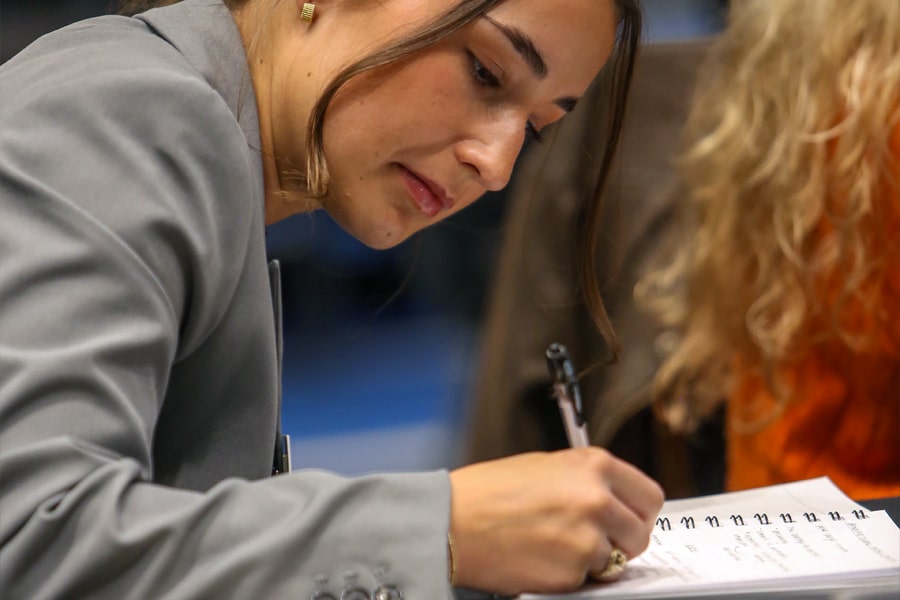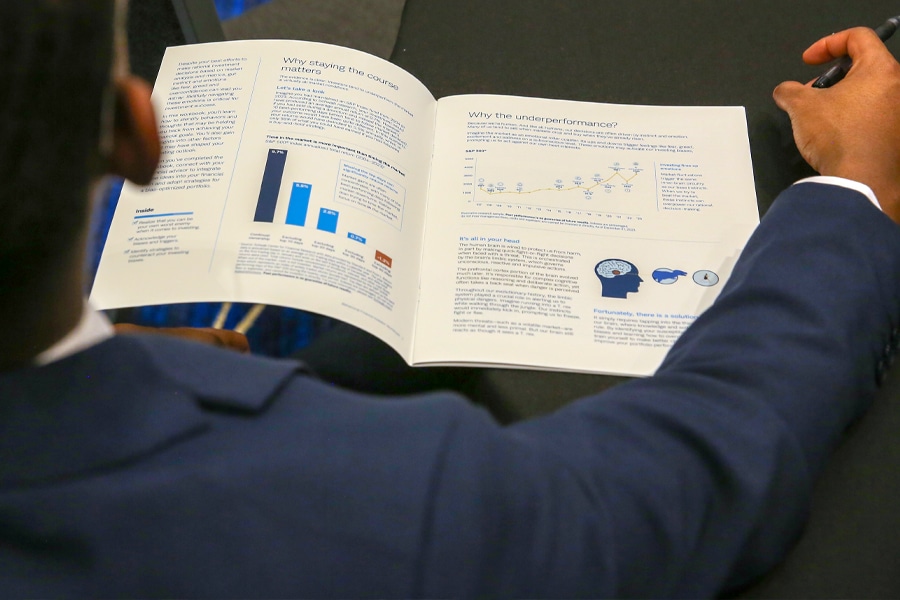
Future Advisors Conference
A conference for the next generation of financial advisors
Join us for the annual Future Advisors Conference January 21-23, 2026, a dynamic event dedicated to bridging the gap between experienced financial advisors and the next generation of wealth management professionals.
Hosted in partnership with Schwab Advisor Services and the Charles Schwab Foundation, this unique conference is designed to address the critical need for new talent in the industry, fostering connections and providing essential knowledge to both seasoned professionals and aspiring advisors.
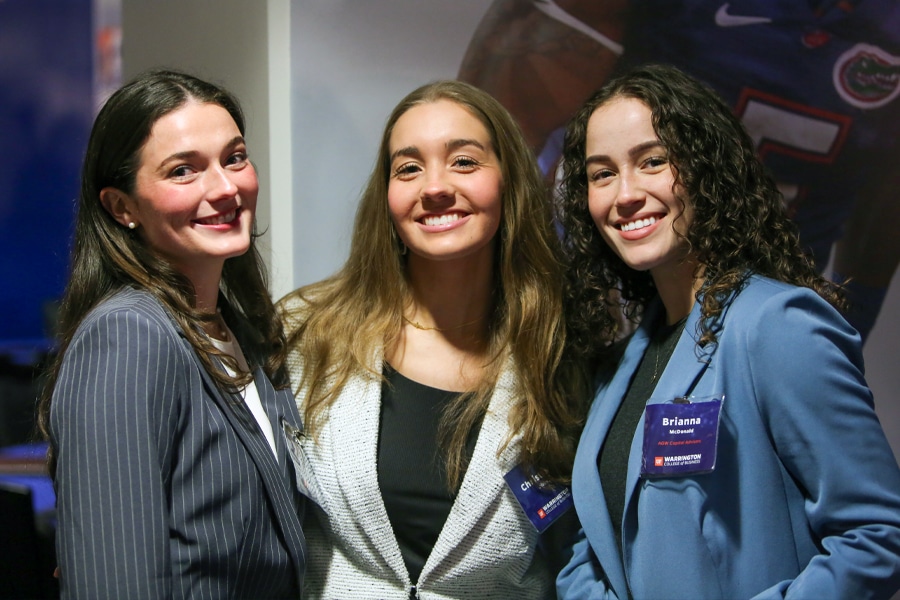
Student case competition
Showcase your skills in financial planning through a case judged by leading RIAs.
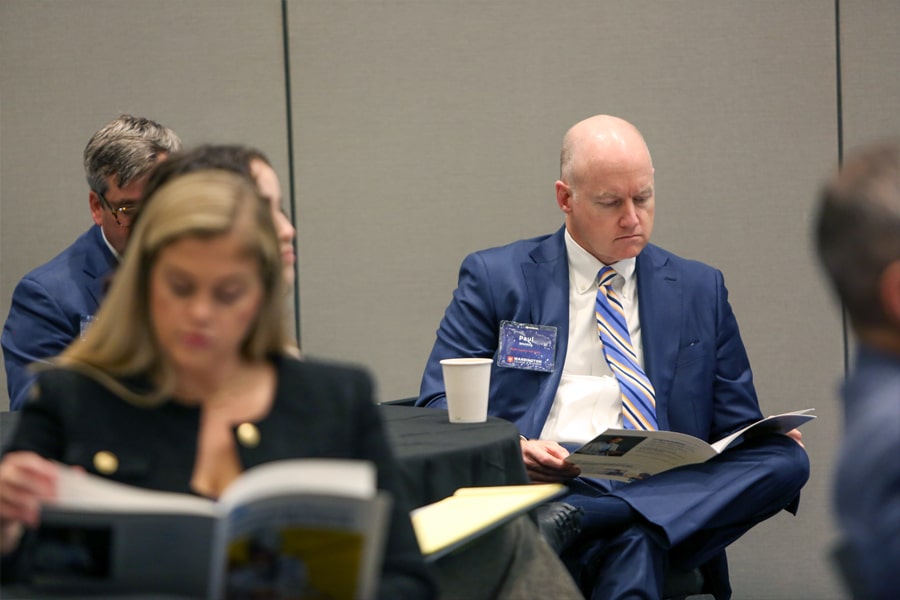
Industry speakers
Hear insights from top voices shaping the future of the wealth management industry.
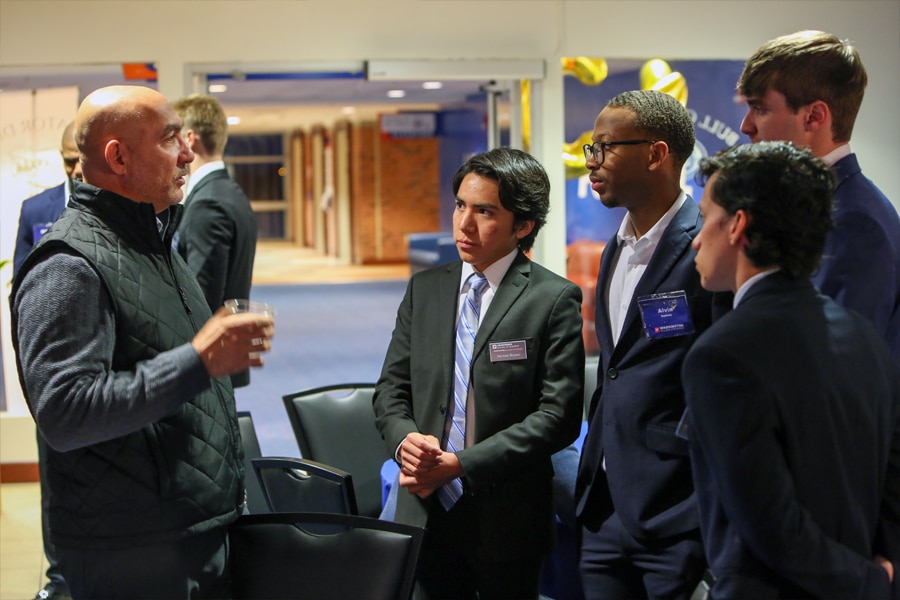
Build powerful connections
Connect with advisors, firms, students, and universities from across the country.
2026 agenda
Wednesday, January 21st
- 1:00pm – FAC student challenge | Heavener Hall
- 4:15 – 5:00pm – Stadium tour & group photo | Ben Hill Griffin Stadium
- 5:00 – 7:00pm – Reception | Champion Club at Ben Hill Griffin Stadium
Thursday, January 22nd
- 8:00am – Registration opens | UF Hilton Conference Room
- 8:00 – 8:45am – Welcome breakfast
- 8:45 – 9:20am – Opening remarks
- UF Leadership – Dean Saby Mitra & Max Dolinsky
- Schwab Leadership – Sherri Trombley
- 9:20 – 10:00am – Opening keynote
- Lessons in Leadership: Fireside Chat
- Tom Bradley – Chief Client Officer at Charles Schwab Independent Advisor Services
- Lessons in Leadership: Fireside Chat
- 10:10 – 10:50am – Breakout sessions
- 11:05 – 11:50am – Market outlook
- Kevin Gordon – Director, Macro, Investment Research and Strategy at Charles Schwab
- 12:00 – 12:30pm – Lunch
- 12:45 – 1:00pm – CFP board updates
- Jason Gudenius – Managing Director, CFP Board
- 1:10 – 1:40pm – Psychology of Financial Planning
- 1:50 – 2:30pm – The Talent Gap: Why Ambition Alone Isn’t Enough
- Student and Industry Point of View Panel
- 2:40 – 3:10 pm – Can AI Predict Stock Returns? Enhancing Forecasting for Financial Advisors
- Alejandro Lopez Lira, Ph.D. – Assistant Professor of Finance, University of Florida
- 3:20 – 4:00pm – Closing keynote
- Reimagining the Modern RIA: Building a Firm for the Next Generation
- Jim Dickson – Founding Partner & CEO, Elevation Point
- Reimagining the Modern RIA: Building a Firm for the Next Generation
- 4:00 – 4:30pm – Closing remarks
- FAC Challenge Winners Announced
Friday, January 23rd
- 8:00 am – Golf scramble | Mark Bostick Golf Course at UF

Sign up to compete
Each year, student participants are given a realistic challenge to use during the advising conference competition. Information is shared with participants in advance to guide their planning and presentation during the challenge.
Student challenge
Eligibility
- Open to undergraduate and combined degree students.
- Teams must consist of 2-4 members from the same institution.
- Multiple teams from the same institution are allowed to participate.
- Each team should have a faculty advisor for guidance and support. Multiple teams can have the same advisor.
- Industry advisor feedback, coaching, and mentoring are encouraged as the ultimate goal for the challenge is to provide students with an opportunity for learning and growth.
Timeline
- Submission of a written financial plan based on a provided case study via email to Helene Hale with subject “FAC Financial Planning Challenge submission” by December 8th, 2025, 11:59PM.
- On the front-page list student names, faculty advisor, industry advisor(s), and school affiliation. Do not include any other team-identifying information following the first page.
- Results will be announced by December 12th.
- Selected teams will present their financial plan to a panel of judges in-person on Wed, Jan 21st.
- Winners announced at close of the FAC on Thu, Jan 22nd.
Deliverables
- Written financial plan: A comprehensive document that includes analysis, recommendations, and a clear action plan for the client.
- Client profile and goals.
- Financial analysis.
- Recommendations (e.g., investment strategies, risk management).
- Implementation plan.
- Appendices (supporting calculations, graphs, etc.).
- Presentation (if qualified for the in-person round), is to be done as if you are presenting to the client, summarizing the key aspects of the financial plan. Any delivery format is allowed; creativity and effectiveness of the presentation style will be a part of evaluation criteria. This may include a PowerPoint presentation, walking through financial planning software reports or simulation. Judges may ask hypothetical “what-if” questions.
- Duration: 10-12 minute presentation followed by an extensive Q&A session with judges.
Evaluation criteria
- Technical accuracy (30%): Correctness and thoroughness of financial analysis, calculations, and recommendations.
- Client-centric approach (25%): The extent to which the plan aligns with the client’s goals, values, and risk tolerance.
- Creativity and innovation (15%): Unique and effective strategies or solutions proposed in the financial plan.
- Presentation (20%): Clarity, organization, and persuasiveness of the presentation, including the ability to answer judges’ questions.
- Professionalism (10%): Overall professionalism in the written plan, presentation, and interaction with judges.
Awards
- Winning team: Each member of the winning team will receive CFP prep from – The Dalton Review® ($1,595 value / person)
- Additional prizes may be supplemented by sponsors.
Financial planning software
Participants are encouraged to utilize financial planning software, such as MoneyGuidePro, eMoney, or similar tools, to enhance the accuracy and professionalism of their financial plans. Incorporating software-generated analyses and visual aids can strengthen your recommendations and presentations. Students needing access to software, contact FAC organizers.
Artificial intelligence
Participants are free to leverage artificial intelligence tools and resources to enhance their financial analysis, forecasting, and strategy development. However, all AI-generated content must be original, and used in a manner that supports ethical decision-making and demonstrates a strong understanding of financial principles. The final submission should reflect the student’s own work, with AI serving as a tool to complement their knowledge and creativity.
Developed by
Gillen Manos (AllGen Financial)
Aaron Bert CFP® (Certified Financial Group, Inc)
Kevin Caldwell CFP® (Golden Road Advisors)
Meet your new clients, Beth (03/25/95) and Donald (08/27/97) Gorrie. Beth was born in Cedar Key, Florida and left to attend UF when she was 18, which is where she met Donald. Beth and Donald have been married for eight years and have two children, Ava (08/03/18) and Bradley (05/06/21). Their youngest child, Susan, is expected to be born in January of 2026. They live in Tampa, Florida where Donald was born and raised. Beth and Donald had a bad experience with another financial planning firm, Sunshine Capital and Asset Management, in Tampa, and are wary about the financial industry. They heard about you through a friend and are giving you a chance because of that.
Donald owns a small HVAC business from which he takes $120,000 per year in distributions. Donald has one partner, Greg, with whom he started the business seven years ago as a general partnership (They each own 50%). The two have five employees. Recently, Donald’s company finished a job for a local business park and cleared a one-time profit of $125,000. Donald and Greg each took $50,000 and split the rest amongst their employees as a bonus. However, even if they land similar jobs in future, Donald does not want to take any more bonuses. They barely finished the most recent job on time, and Donald and Greg decided to take the next five years and invest in the business as much as possible. They want to establish a proper succession plan, a retirement plan for employees (until now Donald has just been maxing out his IRA), and finish up some deferred maintenance on their equipment.
Beth has been a full-time homemaker and mother since Ava was born in 2018. She occasionally helps Donald with bookkeeping, but she spends most of her time homeschooling their children. Bradley, now four years old, was diagnosed at age two with mild spastic hemiplegic cerebral palsy, likely caused by a lack of oxygen during birth. While cognitively strong and sociable, Bradley has limited motor function on his right side. He walks independently but wears an orthotic brace and continues to receive physical therapy several times per week. Beth and Donald are committed to giving Bradley the fullest possible life but worry about the long-term costs of therapy, assistive equipment, and possibly specialized private schooling. His needs aren’t overwhelming, but they are persistent, and the Gorries feel unprepared for the financial and legal aspects of planning for his future. They’ve heard of programs they might be able to use to fund private schooling for their children but aren’t sure where to start. They are happy to keep homeschooling until at least middle school, so they’d like to take the time to research what private school options exist in Tampa and what they might cost.
The Gorries also aren’t committed to sending their children to college. They see it as a possibility but also want to be prepared if their kids want to attend trade school, get a technical education, or start their own business. They are willing to start saving so that they can help their children get started after high school, but they don’t want to limit their options too much.
Beth’s grandmother passed away six years ago and left her and Donald her childhood home in Cedar Key, along with a $150,000 mortgage on the property. It was worth about $175,000 at the time. The home is structurally sound but cosmetically shabby and outdated. The mortgage has about 20 years remaining with a monthly payment of $950 at a 4.5% interest rate. Currently, the property is generating just enough income to cover expenses and is roughly breaking even each year. Donald has spoken to a real estate agent in the area and determined that they could sell the home as is for $210,000. Alternatively, they could renovate the home for $35,000 in order to boost the sale price to approximately $315,000. If they wished to keep the home, either for the income or for sentimental reasons, they could invest an extra $10,000 to convert it into a short-term rental. They estimate that this renovation would increase the revenue from the house and allow for an annual profit of $8,000.
The Gorries’ all-in annual living expenses for 2024 were approximately $85,000. They prepared a summary of income and expenses for you to review. Donald and Beth don’t have any life insurance and getting some is one of their top priorities. Donald knows that the family couldn’t function if either parent were to pass away, but so far life insurance just hasn’t been something he wants to think about. He’s heard of all kinds of different life insurance products, even ones that might help his kids save for college, but he’s really not sure what to pick and is worried about getting ripped off. Donald provides health insurance for the family through a small group plan he set up through his business, with the company covering half the $1,800 monthly premium. The plan is HSA-eligible and covers major expenses, but they still pay several thousand dollars out of pocket each year. They don’t have any money accumulated in their HSA right now since they used it for Bradley’s birth and therapy expenses. They’d love to lower those costs, if possible, but it’s not a top priority.
Donald’s IRA currently has a balance of $70,000, with most of the balance invested in S&P 500 no-load index funds and the rest in some stocks he found interesting. Donald knows he needs to invest for his family’s future, but never really understood the markets. He doesn’t want to invest in anything too complex going forward, or pay high fees, but he is willing to take advice on expanding outside of just the S&P. Donald and Beth have a moderate risk tolerance. He plans to work until at least 62, and maybe later depending on how much work he is still doing in the business. Beth has no plans to go back to work until after their kids are grown up, although she is willing to help out around the business part-time if needed. Neither of them has much faith in Social Security. Beth is also worried about their estate plan. They had the basic documents done the year after they were married but haven’t updated things since they had kids.
Donald and Beth both grew up loving the outdoors and want to instill that same love in their children. In a few years, they would like to start taking trips every year or two to the National Parks. Beth in particular wants to visit the Channel Islands in California and go kayaking in the sea caves.
Donald and Beth have rented for their entire marriage so far. They get along very well with their landlord and don’t anticipate having to move anytime soon. Their rent goes up every few years, but stays mostly in line with inflation. They are very cautious about buying a home before they are ready, and don’t want to stretch their budget. They do eventually want to buy and would prefer a 15-year fixed rate mortgage that doesn’t exceed 30% of their income. Because they do not typically borrow money, they want some advice on getting a manually underwritten mortgage.
Beth drives a 2016 Toyota Sienna and Donald has a 2018 Honda Accord. Beth’s Sienna has 80,000 miles on it, while Donald’s Accord has 60,000 miles. They are happy with their cars but would like to be able to pay cash whenever it is eventually time to upgrade.
Net worth statement
| Asset | Donald | Beth | Joint | Total |
|---|---|---|---|---|
| Checking account | $5,276 | |||
| Savings account | $14,947 | |||
| Total accounts | $22,434 | $22,434 | ||
| Donald’s IRA | $69,537 | |||
| Total retirement | $69,537 | $69,537 | ||
| Cedar Key rental | $210,000 | |||
| Total real estate | $210,000 | $210,000 | ||
| 2016 Toyota Sienna | $9,155 | |||
| 2018 Honda Accord | $12,356 | |||
| Total automobiles | $12,356 | $9,155 | $21,511 | |
| Total assets | $323,482 |
| Liability | Donald | Beth | Joint | Total |
|---|---|---|---|---|
| Total liabilities | $0 | $0 |
Net worth
$323,482
Investments
IRA allocation
- SPZX: 75%
- NVDA: 8%
- MSFT: 7%
- AAPL: 6%
- AMZN: 4%
Insurance
- Health insurance: high deductible HSA plan: $900/month
- Car insurance (Donald): $120/month, $1,000 deductible, 100/100/300 coverage
- Car insurance (Beth): $140/month, $1,000 deductible, 100/100/300 coverage
- Donald receives a 70% disability insurance policy paid fully as a employee benefit
Budget
| Category | Monthly amount |
|---|---|
| Rent | $2,200 |
| Utilities and internet | $375 |
| Groceries and household | $1,100 |
| Transportation | $550 |
| Health insurance premium | $900 |
| Healthcare (out-of-pocket) | $550 |
| Bradley’s therapy needs | $400 |
| Kids’ needs and activities | $350 |
| Dining and entertainment | $200 |
| Travel fund | $150 |
| Car insurance (Donald) | $120 |
| Car insurance (Beth) | $140 |
Guest speakers
Chief Client Officer, Charles Schwab
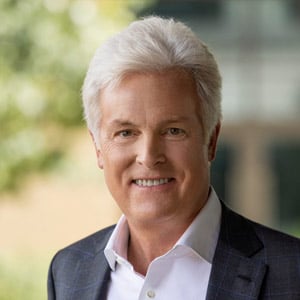
Tom Bradley serves as the Chief Client Officer at Charles Schwab, where he leads the firm’s efforts to enhance advisor and client experience across Schwab Advisor Services. With more than 35 years in the financial services industry, Tom has played a pivotal role in shaping the independent advisory profession. Before joining Schwab, he served as President of both the Retail and Institutional businesses at TD Ameritrade.
Director, Macro, Investment Research and Strategy, Charles Schwab

Kevin Gordon serves as Head of Macro Research and Strategy at Charles Schwab, where he oversees macroeconomic research and works closely with the company’s asset class strategists, researchers, and trading team to generate insights on the economy and markets for clients. His commentary on the U.S. economy and investor sentiment is regularly featured across major financial media outlets of CNBC, Yahoo Finance, and Bloomberg TV.
Director, Charles Schwab
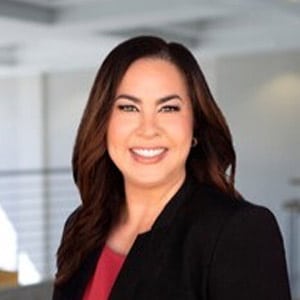
Sherri Trombley serves as a Director within the Business Consulting & Education team at Schwab Advisor Services, where she leads Schwab’s university and talent-development partnerships across the country. She partners with independent RIAs to strengthen their teams and connect the next generation of financial planner with meaningful career opportunities.
CEO, Elevation Point
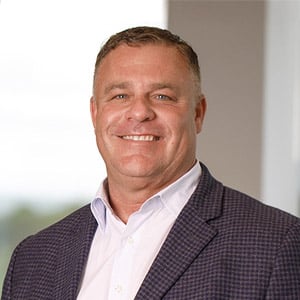
Jim Dickson serves as the Founding Partner & CEO of Elevation Point, an RIA growth partner built to support advisors who want to go independent and build a lasting firm. He focuses on helping RIAs scale their businesses through strategic investment, operational support, and partnership. With more than 40 years in the financial services industry, Jim has been a key voice in advancing advisor independence and firm ownership. Before founding Elevation Point, he launched Sanctuary Wealth and spent two decades in senior leadership at Merrill Lynch.
Managing Director, CFP Board

Jason Gudenius was named CFP Board’s Managing Director, Workforce in September 2023. In this role, he leads CFP Board’s Talent Pipeline, Future Financial Planner and Student Engagement initiatives. Prior to this role, Jason served as CFP Board’s Director of Marketing for 6 years. Under Jason’s leadership, CFP Board developed and executed extensive marketing and engagement programs supporting tens of thousands of candidates pursuing CFP® certification.
Assistant Professor of Finance, University of Florida
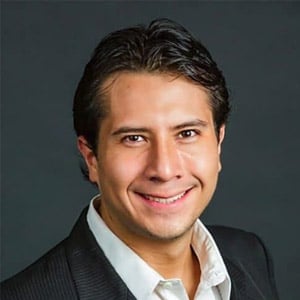
Alejandro Lopez Lira is an Assistant Professor of Finance at the University of Florida. His research has earned national recognition, including awards from the Jacobs Levy Center and Invesco, while he frequently participates in speaking events focused on AI and financial markets.
Alejandro is the author of Generative AI and ChatGPT in Financial Forecasting, a book that explores the practical use of large language models in market analysis and investment research. He teaches courses in financial modeling and quantitative research at UF. Before joining the faculty, he completed his Ph.D. in Finance at the Wharton School.
Registration
Take advantage of our Early Bird pricing and save when you register by December 14, 2025!
Early Bird: $20
Regular Admission: $30
Early Bird: $190
Regular Admission: $250
Please contact us for sponsorship details.
Location and accommodations
The case challenge is held at the Warrington College of Business on the University of Florida campus. The conference is held at the UF Hilton.
Hilton University of Florida Conference Center
1714 SW 34th Street, Gainesville, Florida, 32607
Mention that you are attending the Future Advisors Conference to receive the room block rate of $139 available until December 18th at 5:00 PM
Other area hotels
Airports
Gainesville Regional Airport (GNV)
15-min drive
Jacksonville International Airport (JAX)
1.5-hour drive
Orlando International Airport (MCO)
2-hour drive
Tampa International Airport (TPA)
2-hour drive
Frequently asked questions
Advisors and firms should use the general registration link.
Use the student registration link and click “I’m registering on behalf of this person” while filling out the form.
If you are interested in becoming a sponsor, please contact Helene Hale or Connor Birch for more information.
The case competition is open to undergraduate and combined degree students working in teams of two to four members from the same institution, with guidance from a faculty advisor and optional support from an industry advisor.
Parking for the conference is included at the University of Florida Hilton. For on-campus events such as the FAC student challenge at Heavener Hall and the reception at Ben Hill Griffin Stadium, paid parking is available through the visitor daily permit on the Passport Parking app.
Thank you to our sponsors
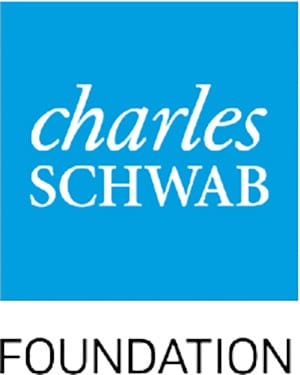

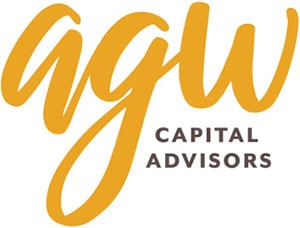
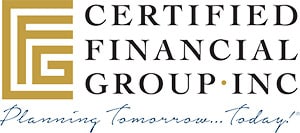

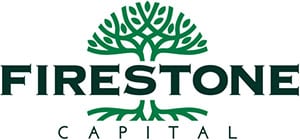


Need to know more about the conference?
Need assistance with the entry? Have questions about the rules or challenge data? Conference organizers are here to help you.
Contact information
Dr. Maxim Dolinsky
Director of Finance Professional Development
Email Max
352-392-8022
Helene Hale
Finance Professional Development Program
Email Helene
352-846-4705
Connor Birch
Bachelor of Arts, Business Administration – Wealth Management, University of Florida | 2026
Email Connor
561-373-1455
